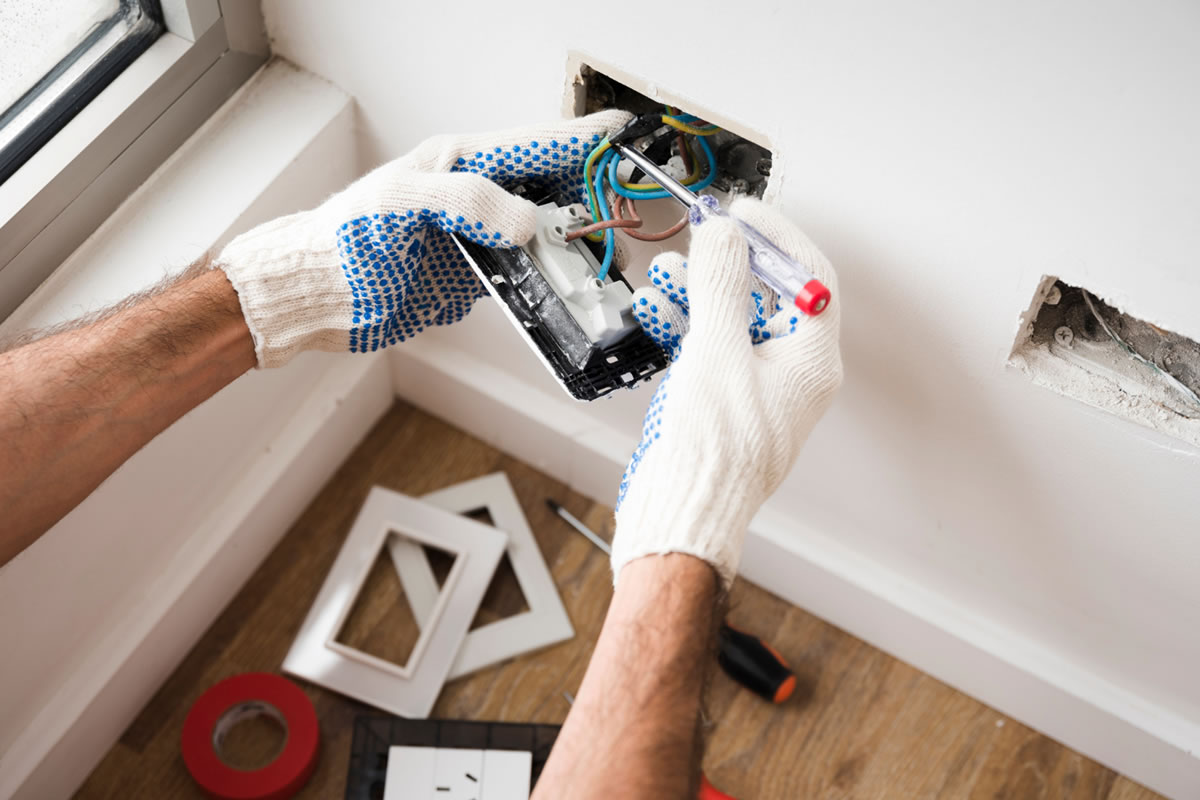Different Types of Electricians

An electrician is a skilled tradesman who works in the contract construction industry and specializes in repairing, maintenance, installation, and design of power systems. It is important to note that the need for these skilled tradesmen continues to grow in America. In fact, by 2028, electrical workers' expected growth is 10%. Electricians in Orlando, FL, perform services in various professional areas, like office building maintenance and commercial, industrial, and residential construction. Our experts offer you the following information on the different types of electricians.
You can break down electrician types into many broad categories. However, there are two primary categories that most electricians fall within.
Wiremen (inside) electricians
Wiremen are electricians who work with lower voltage levels found inside structures and buildings. They repair, maintain, and install electrical systems that provide reliable power sources for industrial, commercial, and residential buildings. Solar power installation and other residential systems fall under this category.
Linemen (outside) electricians
Linemen are also called line electrical workers, and they work outside installing utility distribution and transmission systems with higher voltages. They ensure that the electricity produced from power plants moves to substations and are trained to manage high voltage electrical lines across industrial, commercial, and residential facilities.
Electrician types by certification
There are three certification levels for electricians.
Apprentice electrician
Participating in an apprenticeship program is the first step to becoming an electrician. A person must have a high school diploma or equivalent in most areas to apply. In general, an apprentice electrician must take several hundred hours in the classroom before becoming a part of a commercial electrician group. After three to six years, they can apply for an apprenticeship under a licensed electrician.
Journeyman electrician
Once your apprenticeship program is complete and you have fulfilled every requirement, you can test to become a journeyman electrician, where you can receive your license from a federal, state, or local licensing group. Certification allows you to do electrical work without supervision and provides you with the credentials to train a new apprentice.
Master electrician
This is the highest level of electrician certification, with requirements varying from state to state. In most states, the primary standard is around 4,000 hours of electrical work as a journeyman, followed by passing a licensing exam to confirm in-depth knowledge of the National Electrical Code. Finally, a master electrician works on the most complex industrial and commercial projects and has the experience to teach journeyman electricians to do so, as well.
Electrician types based on specialization
Industrial electricians These professionals are tasked with repairing, troubleshooting, and installing the electrical equipment used in mines, factories, processing plants, and power plants. They work with large complex machinery and manufacturing systems, with some focusing on lighting and security systems.
Commercial electricians
These professionals specialize in maintaining, repairing, and installing electrical systems within commercial buildings, including offices and workplaces. They may also be asked to assist in planning and designing electrical systems during new building construction. This job often includes navigating local electrical codes and public safety concerns.
Residential electricians
This is the most common electrician type. They're usually responsible for upgrading, maintaining, troubleshooting, and installing electrical systems in residential settings, like condominiums, apartments, and homes. In addition, they repair and install air conditioning units, security systems, and various household appliances.
Maintenance electricians
These professionals are an essential part of the residential, commercial, and industrial sectors. Their job includes upgrading, repairing, and maintaining existing electrical equipment. They are also responsible for diagnosing, troubleshooting, and testing issues with equipment.
Auto electricians
These professionals specialize in vehicles and are responsible for a vehicle's electrical system. This job requires an in-depth understanding of vehicle diagnostics and proper inspections of automobile drivetrain systems equipped with performance electronics.
These are the different types of electricians in Orlando, FL, that you may encounter. Contact us today for more information on our services.
